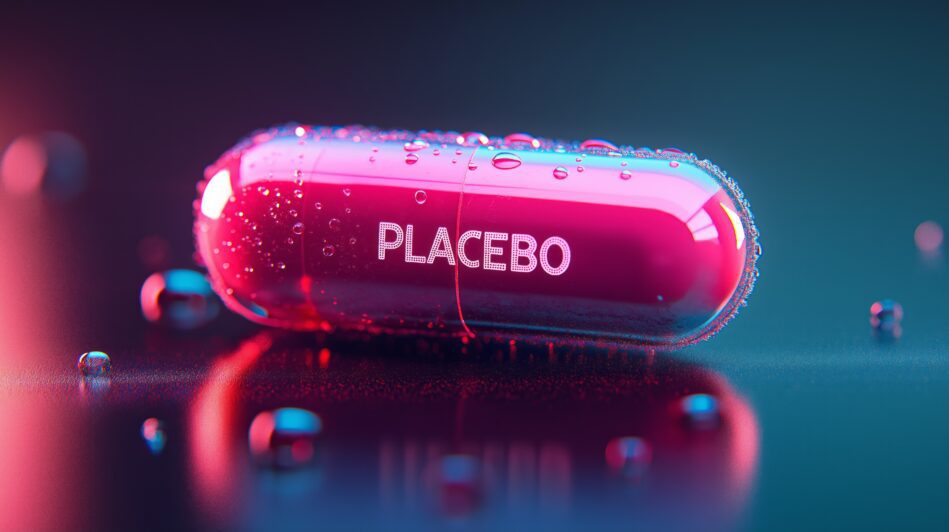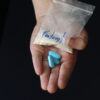For more than 250 years, physicians have used placebos as a deceptive way of placating patients who demand a treatment for their symptoms when there is none. More recently, placebos — inactive pills — are being used as a control intervention in clinical trials to demonstrate the activity of a new drug.
But a new group of researchers is hoping to dramatically change the role of placebos in medicine through the use of “honest” placebos, where the patient knowingly takes a placebo. These “open placebo” pills are now available to consumers on the internet, and the approach is currently being studied in clinical trials to treat diseases ranging from depression to pain.
Advocates of the approach say that it is a more ethical way to harness the placebo effect to benefit patients, and some patients say they’ve used open placebos to taper their active medication use.
Katie McCurdy, a user experience designer in Burlington, Vermont, was prescribed a very large dose of a supplement called quercetin that was meant, in tandem with the steroid prednisone, to control a number of autoimmune conditions. When she found that she could not stop taking the quercetin without severe withdrawals, she turned to Zeebo, an “honest placebo pill” sold online. “I was hoping that I could trick my body into thinking I was still taking the quercetin and therefore lessen my withdrawal side effects,” said McCurdy. But she still had those side effects despite the placebo.
She’s not sure whether it worked or not. McCurdy was not able to get off the quercetin completely, and she occasionally tries to reduce the dosage. But the placebo is no longer in her regimen. However, she sees open placebos as a viable option for the millions of patients in the US with undiagnosed or misdiagnosed health conditions. “They are suffering from symptoms that may have no attributed cause, and they may feel desperate for relief,” McCurdy said. “If a placebo can make some impact on the symptoms, it may be worth trying.”
Placebo Effect Getting Stronger in Drug Trials
Uwe Heiss, the entrepreneur who manufactures and sells Zeebo, believes that two factors have led to this new shift toward open placebo pills. The first is that the placebo effect is apparently getting stronger. In recent clinical trials of new pain drugs, the difference between the active drug and the placebo has diminished over time.
“It’s not because the active drugs are less effective,” Heiss said. “It’s more that suddenly a placebo is providing more pain relief than previously.”
The other factor is an increased awareness of the mind-body connection in medicine. “There is a lot of research that looks at the underlying mechanistic effects of the placebo effect. This could be a conditioned response,” Heiss noted. Put another way, after a lifetime of taking pills to relieve ailments, the body may provide a feeling of relief simply because that’s what it expects to happen after taking a medicine. “It only needs to the trigger, not the substance anymore, to produce the same effect.”
Pain Conditions Seen as Promising Area
According to Michael Bernstein, PhD, a fellow at the Center for Alcohol and Addiction Studies at Brown University, it is precisely those health conditions with a significant psychological, or subjective, component that might benefit from substituting placebos for potentially addictive medicines. “Conditions related to pain are really a promising area,” Bernstein said. “Pain is an inherently subjective process, pain is tough to treat, and we’re really trying to move away from opioids.”
Consumers purchase their own placebo pills. The aren’t being prescribed by their doctors. The open placebo approach is still considered experimental.
Bernstein has started a clinical trial to test this hypothesis in patients who are recovering from hand surgery. At the moment, he is only seeing if patients are willing to take placebos alongside opioids. However, he eventually hopes to test whether patients might take fewer opioids if they have the option of placebo pills.
To be clear, outside of consumers who buy their own placebo pills like Zeebo, patients aren’t regularly being prescribed placebo pills by their doctors. The open placebo approach is still considered experimental.
“We generally don’t have any evidence of this going on in clinical practice,” said Franklin Miller, PhD, a professor of medical ethics in medicine at Cornell University and a former bioethicist at the National Institutes of Health who has written about the placebo effect. But in research studies, the approach seems to be working.
“It seems counterintuitive to most everybody that you could generate a genuine placebo response if people are told that they are getting a pill with no medication in it,” according to Miller. “But paradoxically, we now have several studies — albeit small ones, but in different conditions — that have indicated that compared with no treatment at all, people who take open placebo with a general description of placebo effects do better than those who don’t. That’s a pretty surprising finding.”
Skepticism About Open Placebos From Doctors
Whether the benefits seen with open placebos in clinical trials could hold outside the research setting is controversial. “I have a fair amount of skepticism that what’s been found in these clinical trials with open placebo is translatable into the routine clinical setting,” Miller said. “I think something about the experimental context in these studies may be responsible for the results that have been obtained.”
David Gorski, MD, PhD, managing editor of the website Science-Based Medicine and a professor of surgery at Wayne State University in Detroit, agrees. But even if the results seen in research studies carried over into the real world, he’s not convinced that open placebos would have a significant impact.
“Even at best, if you think that placebos have clinically meaningful effects, the best you can say about them is that they tend to be short-lived, not durable,” he said. “I would be very doubtful that such a move could decrease opioid use, except maybe in the very short term, at best.”
Bernstein has encountered similar skepticism as he rolls out his clinical trial of open placebo pills. “Every physician that I have approached has been at a minimum very skeptical,” he said. Even while skeptical, “the ones that I’ve approached have been open-minded to the idea.”
Ultimately, however, most of the doctors interviewed for this article said they didn’t see much downside to the approach. There are no side effects of a chemically inactive pill, and given the medical community’s skepticism of such an approach, it is unlikely that a doctor would prescribe an open placebo pill when a potentially effective drug treatment is available.
“Licensed physicians who are going to try placebos in clinical practice are going to be pretty careful not to do that in lieu of a medically indicated treatment that has some promise for curing or controlling the disease,” said Miller. “I don’t think there is much to worry about in terms of side effects. I mean, it’s just a pill with nothing in it.”






